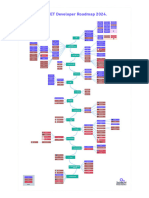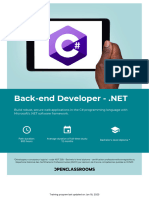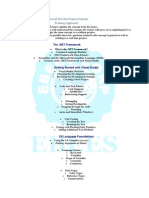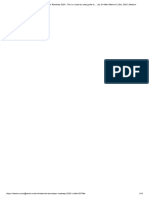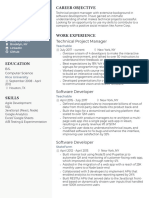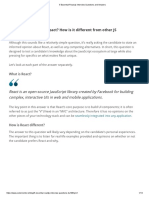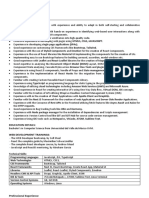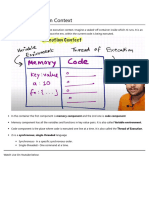0% found this document useful (0 votes)
42 views3 pagesThe Complete - Net C Developers Roadmap
The document outlines a comprehensive roadmap for becoming a .NET/C# developer, starting from computer science fundamentals to advanced topics. It includes essential areas such as C# syntax, data structures, front-end and back-end development, database management, version control with Git, and application security. Each section provides goals, key concepts, and recommended resources for effective learning.
Uploaded by
sayanchanda951Copyright
© © All Rights Reserved
We take content rights seriously. If you suspect this is your content, claim it here.
Available Formats
Download as PDF, TXT or read online on Scribd
0% found this document useful (0 votes)
42 views3 pagesThe Complete - Net C Developers Roadmap
The document outlines a comprehensive roadmap for becoming a .NET/C# developer, starting from computer science fundamentals to advanced topics. It includes essential areas such as C# syntax, data structures, front-end and back-end development, database management, version control with Git, and application security. Each section provides goals, key concepts, and recommended resources for effective learning.
Uploaded by
sayanchanda951Copyright
© © All Rights Reserved
We take content rights seriously. If you suspect this is your content, claim it here.
Available Formats
Download as PDF, TXT or read online on Scribd
/ 3


























